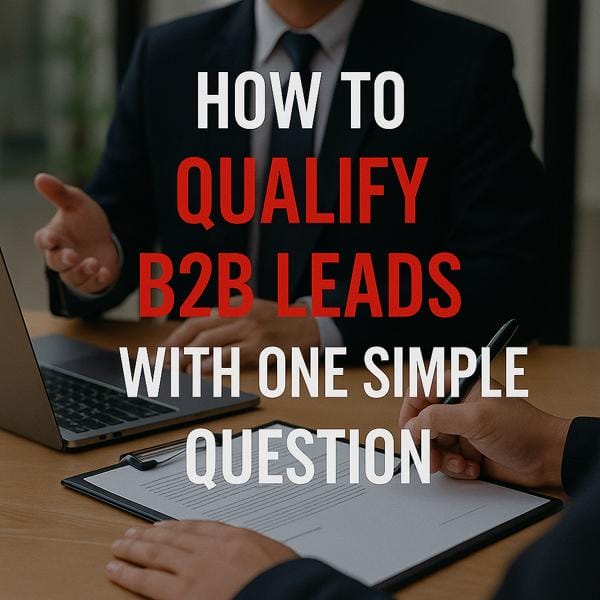How to Use AI in B2B Sales and Lead Generation
Artificial Intelligence (AI) is changing the way businesses work. It helps companies find and connect with other businesses, known as B2B sales. AI can make this process faster and more efficient. In this article, we will explore how to use AI in B2B sales and lead generation. We will look at different tools, strategies, and examples. This will help you understand how AI can benefit your business.

Understanding B2B Sales and Lead Generation
![]()
B2B sales involve selling products or services from one business to another. It is different from B2C sales, which focus on selling to individual customers. Lead generation is the process of finding potential customers, or leads. Here are some key points about B2B sales and lead generation:
- B2B sales often involve larger transactions.
- Building relationships is very important in B2B sales.
- Lead generation helps businesses identify interested companies.
- AI can automate many tasks in B2B sales.
- Companies can save time and resources using AI tools.
- Data-driven decisions become easier with AI.
Understanding these concepts is essential before diving into AI applications. With the right approach, businesses can enhance their sales processes significantly.
How AI Improves Lead Generation Processes
![]()
AI improves lead generation in several ways. It can analyze large amounts of data quickly. This helps businesses find the best leads. Here are some ways AI enhances lead generation:
- AI can sort through data to find potential clients.
- Machine learning algorithms predict buying behavior.
- AI chatbots can engage visitors on websites.
- Automated emails can follow up with leads instantly.
- AI tools can score leads based on interest.
- Data mining helps identify new markets and opportunities.
These features allow businesses to focus on high-quality leads. By doing so, they can increase their chances of making sales.
Using AI Tools for Customer Relationship Management
![]()
Customer Relationship Management (CRM) systems are vital in sales. They help businesses manage interactions with customers. AI can make CRM systems smarter. Here’s how:
- AI analyzes customer data for insights.
- It suggests the best actions for sales teams.
- AI can predict customer needs based on past behavior.
- It automates repetitive tasks, saving time.
- AI chatbots provide instant support to customers.
- They can schedule meetings based on availability.
By integrating AI into CRM, businesses can improve their efficiency. This leads to better customer satisfaction and increased sales.
Personalizing Marketing Efforts with AI
![]()
Personalization is key in modern marketing. AI helps businesses create personalized experiences for their leads. Here are some effective methods:
- AI analyzes user behavior to tailor content.
- It can segment audiences for targeted campaigns.
- AI tools suggest personalized product recommendations.
- Dynamic email content adjusts based on user interests.
- AI can optimize ad placements for specific audiences.
- Chatbots can offer personalized assistance during inquiries.
Personalized marketing increases engagement. This leads to higher conversion rates and sales.
Enhancing Sales Forecasting with AI Analytics
![]()
Sales forecasting is predicting future sales. Accurate forecasts help businesses plan effectively. AI can enhance sales forecasting in several ways:
- AI analyzes historical sales data for trends.
- It considers external factors like market changes.
- Algorithms can identify patterns that humans may miss.
- AI tools can adjust forecasts in real-time.
- Predictive analytics improve decision-making.
- Businesses can allocate resources more efficiently.
With better forecasting, companies can meet customer demands. This can lead to increased revenue and growth.
Streamlining Communication in B2B Sales Teams
![]()
Effective communication is crucial in sales teams. AI can streamline communication in various ways:
- AI tools can summarize conversations and emails.
- They can track project progress and deadlines.
- AI helps schedule meetings across different time zones.
- It can analyze team performance metrics.
- AI-powered platforms facilitate collaboration.
- Virtual assistants can remind team members of tasks.
Improved communication boosts productivity. Sales teams can work together more effectively.
Case Studies: Successful AI Implementations in B2B Sales
![]()
Many companies have successfully used AI in their B2B sales. Here are a few examples:
- Salesforce: Their Einstein AI predicts customer behavior and recommends next steps.
- HubSpot: They use AI to personalize marketing efforts and improve lead scoring.
- IBM: Watson AI helps businesses analyze data for better sales strategies.
- LinkedIn: Their AI tools assist in networking and finding potential leads.
- Zendesk: AI chatbots enhance customer service and support.
- Marketo: Their platform uses AI to optimize marketing campaigns.
These companies demonstrate the power of AI in boosting sales and improving lead generation.
Conclusion: Key Takeaways on AI in B2B Sales
![]()
AI is transforming B2B sales and lead generation. Here are the main points to remember:
- AI improves efficiency in lead generation.
- CRM systems become smarter with AI integration.
- Personalization boosts engagement and conversions.
- Sales forecasting becomes more accurate with AI analytics.
- Communication within sales teams is streamlined.
- Real-world examples show successful AI implementations.
By adopting AI technologies, businesses can enhance their sales processes. This leads to better customer relationships and increased sales success. Embracing AI is no longer an option; it is a necessity for growth in B2B sales.




